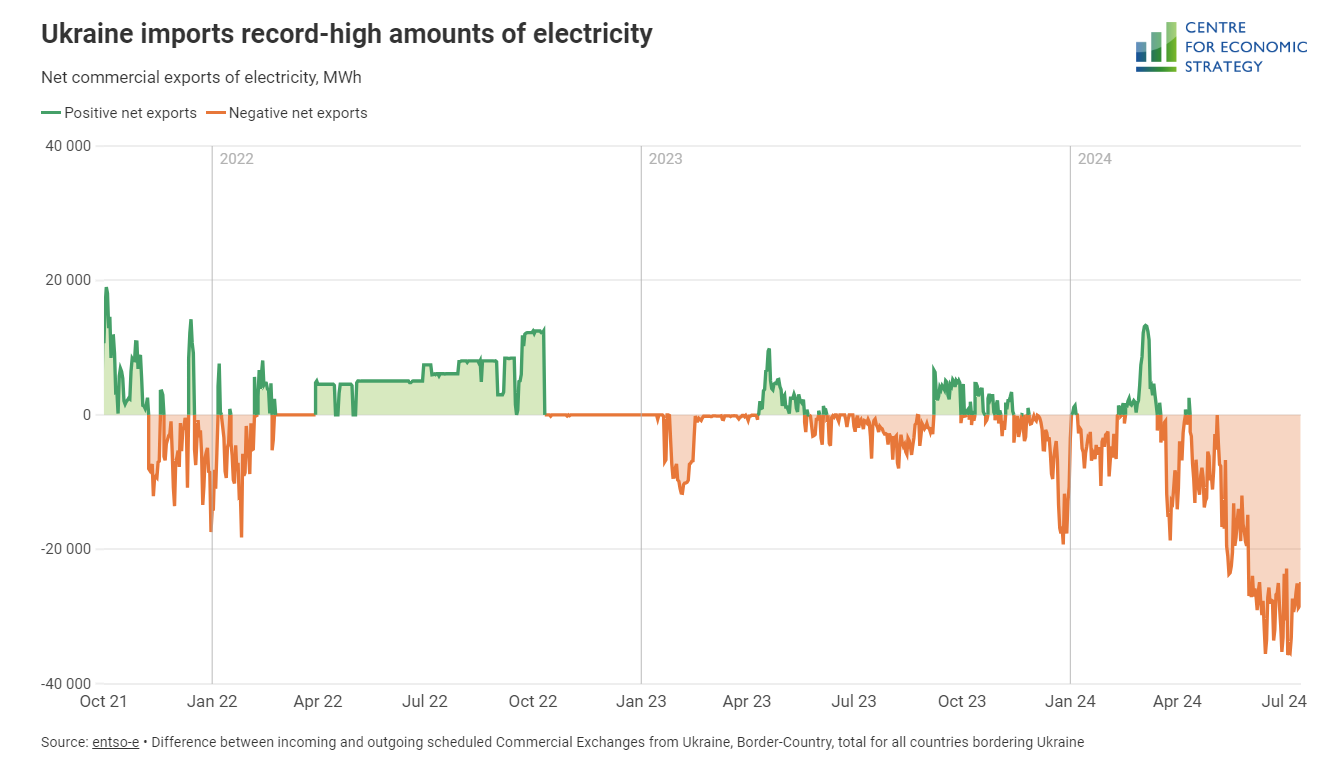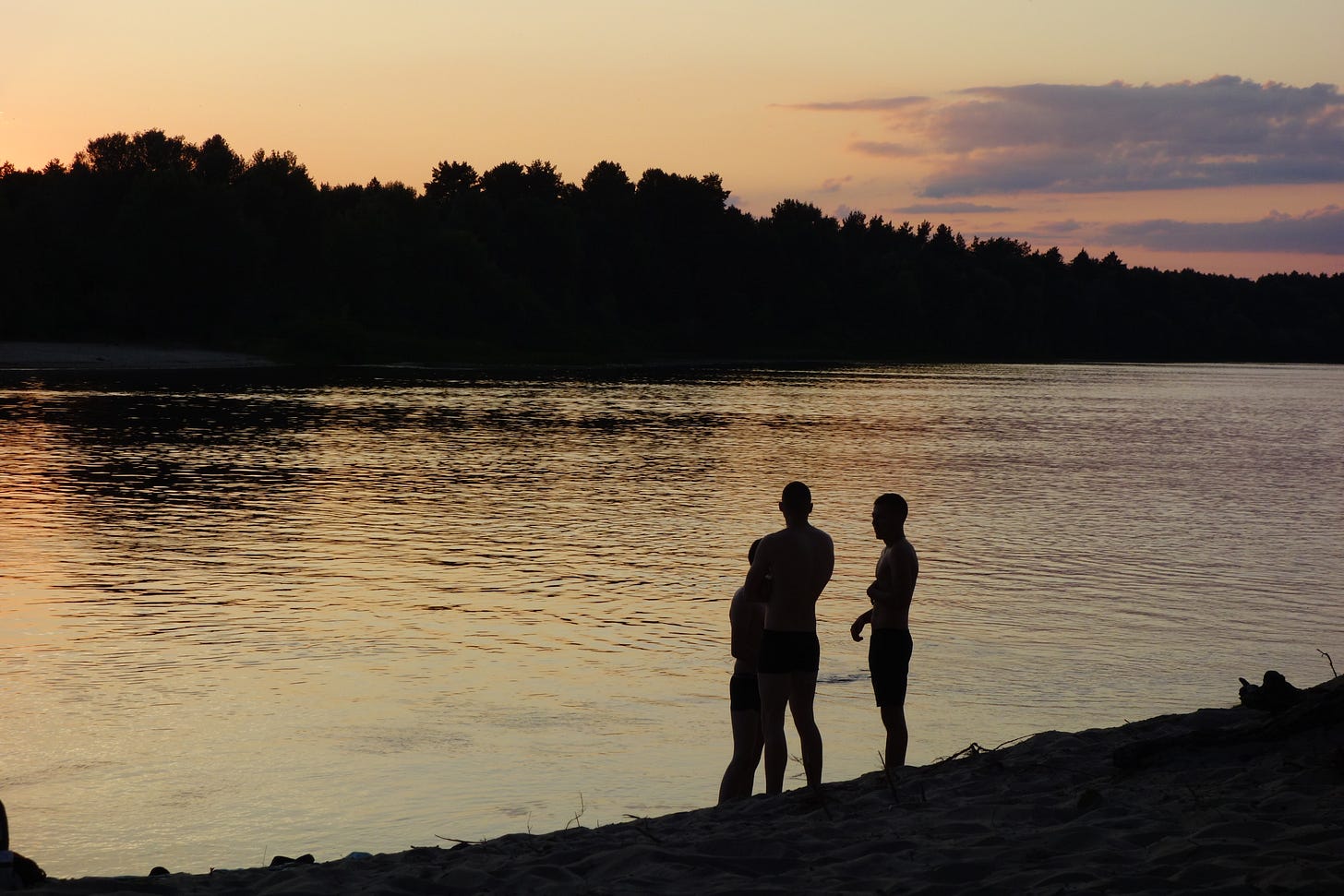The Long War #43
Wartime industry, governement reshuffles, losing parental right to avoid mobilization & more
KYIV—Hi everyone and welcome to this issue of ‘The Long War’, which will probably be this summer’s last, as I prepare to head back to France for some vacation.
I first wanted to add one point to last week’s issue about the problem at the heart of any Ukraine-Russia negotiations: it is clear that things have shifted in the past weeks in terms of readiness to at least attempt talks with Moscow, with Volodymyr Zelensky himself carefully indicating that talks might happen without necessarily attempting to return to the 1991 borders by force. The next few months will be incredibly uncertain, with the results of the U.S. elections looming heavily. Nevertheless, there are huge differences between a possible ceasefire and a comprehensive and stable peace settlement. What I wrote in last week’s issue applies to the latter.
With that said, allow me to highlight a few valuable, English-language stories and reports I’ve come across in recent weeks: an analytical note on Kazakhstan’s Ukrainians and their feelings about the Russian invasion; A piece from writer Ada Wordsworth on how Uzbeks—a people colonized by Russia—can end up fighting for Russia in Ukraine; a 40-pages report on the risks and technicals implication of a possible Russian attempt to restart the Zaporizhzhia nuclear power plant; And RUSI’s latest report looking at the failed 2023 Ukrainian offensive.
Also, as the sound of the diesel generator remains a constant and headache-inducing presence in most Ukrainian cities, here’s a chart showing Ukraine’s net commercial exports of electricity—vividly illustrating just how bad the situation has been in the past weeks compared to the winter of 2022-23:
Something to read
Friedrich-Ebert-Stiftung | Industrial Policy for Ukraine's survival | May 2024
I’m a bit late with this one, but it doesn’t really matter considering the form (a 20-page report) and the near-evergreen nature of the topic: the importance of a solid industrial policy for Ukraine both during its war against Russia and after. Survival, then prosperity and development. Looking first at the disastrous, 30-year-long deindustrialization of the country, authors Brian Milakovsky and Volodymyr Vlasiuk then dive into the attempts to reverse that process in the years before the invasion, the way the invasion fundamentally altered the country’s industrial landscape (from the devastation wrought on industrial giants like Azovstal to the current "entrepreneurial war economy") and the possible solutions. It features clear recommendations, from encouraging localization policies (including the use of protectionist measures) to permitting the export of defense products “that are not in deficit in the UAF to improve economic sustainability of arms manufacturers.” It’s a rare case of a policy paper looking at immediate, urgent issues as part of a decades-long process, and a piece that also talks about Ukraine’s future—something that, to be frank, you do not get a lot these days.
Ukrainska Pravda (in Ukrainian) | Will Zelensky reshuffle the longest-serving government in Ukraine’s history | July 10
Ukrainska Pravda has been talking about the imminent resignation of Shmyhal for some time now and indeed, according to their reporting, his dismissal has been under consideration since… the spring of 2022! Smhyal is, for sure, a strange wartime prime minister. Or maybe he isn’t, maybe he’s the perfect wartime prime minister: invisible and technocratic, focused on results, decidedly keeping the spotlight on Volodymyr Zelensky. That was, after all, his job from the very beginning, at a time when the Ukrainian president was just starting to concentrate powers in the Bankova, the presidential office. Back then, the main worry that civil society had about Shmyhal was that he might be a creature of oligarch Rinat Akhmetov (Shmyhal had been the head of a regional branch of Akhmetov’s DTEK energy company, though there has never been any indication of him doing Akhemtov’s bidding since).
Three unstructured thoughts I got from this piece: Ukraine’s government has remained remarkably stable in the past two years, despite near-constant talk of reshuffle; one major reason for this (which has been confirmed to me by several sources) is that the Bankova is simply struggling to find people; and it’s also notable that the change of approach that Zelensky promised when he dismissed Valery Zaluzhny hasn’t happened.
DEJURE Foundation (in Ukrainian) | In the Best Interests of the Father: How Children’s Rights Are Abused During Mobilization | June
Another story about mobilization, how people try to avoid it, and the unintended consequences it can have. This report by a Ukrainian judicial NGO is focused on a point of the legislation allowing men to receive a deferment from mobilization when they raise a child by themselves. A court depriving the mother of her parental rights would leave the father as the only parent, making it easier to receive that deferment. This is now happening a lot, according to the NGO, which analyzed 364 cases and looked into 10 specific tribunals. One of those, the Bilhorod-Dnystrovskiy district court in the Odesa region, had only dealt with five cases about parental rights in 2021—but more than a thousand in 2022 and 2023. The court, maybe unsurprisingly, has been suspected of corruption for some time now.
ICYMI
Stories from legacy Western media published over the week-end (and today)
The Guardian / ‘I’m a person again’: the Ukrainian convicts recruited to fight the war
The New York Times / The Decathlete Who Picked Up a Gun
Associated Press / The loneliness of an Olympic athlete training in wartime Ukraine through an AP photographer’s lens
The Guardian / Zhan Beleniuk: ‘I will fight Russians at the Olympics but will I shake hands? No’
NPR (podcast) / A Story About Witches in Ukraine
The New York Times / The Buried Book That Helped Ukraine’s Literary Revival
BBC / Air strikes can’t stop the music at this Ukrainian festival
NPR / Near Ukraine's front line, a devastated community takes stock after Russian advances
If this newsletter has been useful to you, please support my work by upgrading to a paid subscription, making a one-time donation or encouraging your friends and colleagues to sign up. Thank you.





